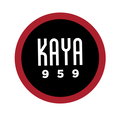
Illegally imported second-hand vehicles are becoming a huge challenge in SA.
Loading player...
GUEST - Mikel Mabasa - CEO of the National Association Automobile Manufacturers South Africa (Naamsa)
Illegal second-hand vehicles are becoming a significant challenge locally, with many South African unknowingly buying these cars.
Despite efforts to control the imports, some 50 000 new imports are entering the local market each year. Research from the International Transport Forum (ITF) found many of these cars have been found to be "bottom of the barrel" and unroadworthy, adding to
air pollution and car accidents. CEO of the National Association Automobile Manufacturers South Africa (Naamsa) Mikel Mabasa said the South African automotive industry has been battling huge amounts of car dumping, particularly grey or illegal second-hand
imports arriving at the Durban Port each year. According to Mabasa, these imports make up 7.5% of the nation's 12.5 million car fleet.
Illegal second-hand vehicles are becoming a significant challenge locally, with many South African unknowingly buying these cars.
Despite efforts to control the imports, some 50 000 new imports are entering the local market each year. Research from the International Transport Forum (ITF) found many of these cars have been found to be "bottom of the barrel" and unroadworthy, adding to
air pollution and car accidents. CEO of the National Association Automobile Manufacturers South Africa (Naamsa) Mikel Mabasa said the South African automotive industry has been battling huge amounts of car dumping, particularly grey or illegal second-hand
imports arriving at the Durban Port each year. According to Mabasa, these imports make up 7.5% of the nation's 12.5 million car fleet.

